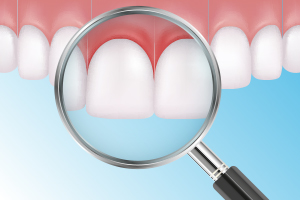
Why Gum Health Is So Important
And how to monitor your own gum health.
When it comes to oral health, it’s natural to focus primarily on your teeth. (They are, after all, the most visible aspect of your smile.) However, perhaps even more important to consider is gum health.
Your gums are the foundation of your teeth. After all, where would your teeth be without your gums to hold everything in place? Furthermore, gum health can be an indicator or “early warning,” which alerts you to potential problems before it affects the teeth.
Receding Gums
Gum recession happens gradually and may be caused by various factors. Having gums that recede and leave teeth looking “long” with tooth roots exposed is relatively common in older adults, but it can also be a sign of something wrong. Poor oral hygiene and plaque buildup can trigger gum recession, as can drug use such as smoking or chewing tobacco. Additionally, improper brushing or brushing with too much force can irritate gum tissue and cause damage.
Bleeding/Painful Gums
Bleeding gums is never considered “normal.” If you experience bleeding during brushing and flossing, you may have early-stage periodontal disease, also known as gingivitis. Furthermore, with proper technique, your oral hygiene should not be an uncomfortable endeavor. If your gums are painful, swollen, or have other signs of inflammation and infection, contact your dentist for a periodontal checkup.
Sores & Discolorations
Finally, make it part of your daily routine to perform a quick self-evaluation. Get to know the inside of your mouth so you can recognize things when they’re out of the ordinary. Inspect the gums and other soft tissues, including the tongue, roof of your mouth, under the tongue, and inside of the cheeks and lips. Tissues should be a healthy pink or coral color. Red or white discolorations, sores, or lesions that don’t heal should be brought to the attention of a dentist.
